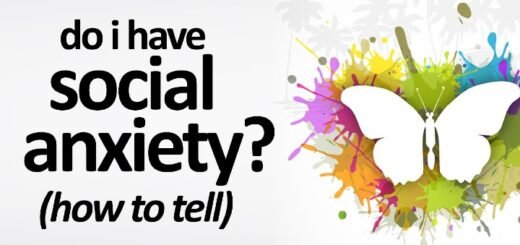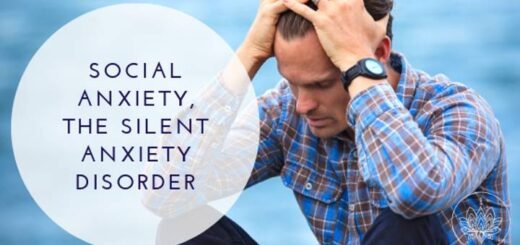Conquering Social Phobia: New Zealanders’ Personal Journeys
In New Zealand, social phobia affects many individuals, shaping their daily experiences and interactions. “Personal Stories: Real-Life Experiences of New Zealanders Living with Social Phobia and Their Journeys to Recovery” delves into the challenges faced by those struggling with this condition. By sharing personal narratives, the project aims to foster understanding of social phobia, highlighting the diverse paths to recovery that Kiwis embark upon.
Through these compelling stories, we gain insights into the complexities of living with social anxiety and the importance of community support. For a deeper exploration of what social phobia entails, including its impact on adults, visit Understanding Social Phobia in Adults: A Kiwi Guide. These accounts not only illuminate the struggles but also celebrate the resilience of New Zealanders as they navigate their journeys toward healing and understanding social connections.
Understanding Social Phobia in New Zealand
Social phobia, or social anxiety disorder, affects many individuals across New Zealand. It manifests as an overwhelming fear of social situations where one might be scrutinized or judged by others. For New Zealanders, this can include common scenarios like attending social gatherings, speaking in public, or even making phone calls. Understanding social phobia is the first step towards recovery. Many people are unaware of how pervasive this condition is, often leading to feelings of isolation. According to Social Phobia New Zealand, it is estimated that around 1 in 10 New Zealanders will experience social phobia at some point in their lives. The importance of raising awareness about social phobia cannot be overstated, as it helps reduce stigma and encourages individuals to seek help.
Personal Stories: Overcoming Fear in Daily Life
Many New Zealanders have shared their journeys with social phobia, illustrating the profound impact it can have on daily life. One such story is that of Sarah, a 28-year-old from Auckland, who struggled with attending family gatherings due to her fear of judgment. Through cognitive behavioral therapy (CBT), Sarah learned to challenge her negative thoughts and gradually exposed herself to social situations that once paralyzed her. For those looking for similar support, Social Phobia New Zealand offers resources and connections to mental health professionals who specialize in this area. Sarah’s story highlights that recovery is possible and that facing fears step by step can lead to significant improvements in quality of life.
Community Support: Finding Allies
Finding a supportive community is crucial for individuals living with social phobia. Many New Zealanders have found solace in local support groups where they can share their experiences and learn from one another. For instance, the Wellington Social Anxiety Support Group meets weekly, providing a safe space for individuals to discuss their challenges and victories. Participants often emphasize the importance of understanding social dynamics within their group, allowing them to practice social interactions in a non-judgmental environment. The Social Phobia New Zealand website lists various support groups across the country, making it easier for individuals to connect with others who understand their struggles.
Utilizing Online Resources
In today’s digital age, online resources play a significant role in recovery from social phobia. Many New Zealanders have benefited from online forums, webinars, and courses focused on managing social anxiety. Websites like Social Phobia New Zealand provide valuable information on coping strategies and self-help techniques that can be accessed from the comfort of one’s home. Engaging with these resources allows individuals to learn at their own pace and develop skills that can be applied in real-life situations. Online therapy sessions have also gained popularity, offering a convenient way for those struggling with social phobia to connect with therapists without the stress of in-person meetings.
Therapeutic Approaches: Finding the Right Fit
Each individual’s journey with social phobia is unique, and finding the right therapeutic approach is essential for recovery. New Zealanders have reported success with various treatment methods, including mindfulness practices, exposure therapy, and medication. For example, John, a 35-year-old from Christchurch, found that mindfulness meditation significantly reduced his anxiety levels. He regularly practices mindfulness techniques learned through local workshops and online resources provided by Social Phobia New Zealand. This approach has allowed him to remain grounded during social interactions. It’s crucial for individuals to explore different therapies and consult with mental health professionals to determine what works best for their specific needs.
Building Resilience: Personal Growth Through Challenges
Living with social phobia can lead to feelings of inadequacy and fear of failure. However, many New Zealanders have turned their struggles into opportunities for personal growth. Emma, a 22-year-old from Dunedin, started a blog to document her journey with social anxiety. Through writing, she not only found an outlet for her feelings but also connected with others facing similar challenges. Emma’s blog has become a source of inspiration for many, proving that sharing experiences can foster resilience. Resources available through Social Phobia New Zealand encourage individuals to embrace their unique stories and use them as a platform for growth and healing.
Setting Realistic Goals for Recovery
Setting achievable goals is a vital part of overcoming social phobia. New Zealanders have found that breaking down larger goals into smaller, manageable steps can make the process less overwhelming. For instance, Mark, a 30-year-old from Hamilton, set a goal to initiate a conversation with a colleague at work. By starting with a simple greeting and gradually progressing to more in-depth discussions, he built his confidence over time. Tools and strategies suggested by Social Phobia New Zealand can assist individuals in setting realistic goals tailored to their comfort levels. Celebrating small victories along the way can help maintain motivation and reinforce the belief that recovery is achievable.
FAQs
What is social phobia and how does it affect New Zealanders?
Social phobia, also known as social anxiety disorder, is characterized by an intense fear of social situations where individuals may be judged or scrutinized by others. In New Zealand, many individuals experience this condition, which can hinder their ability to engage in everyday activities, such as attending social gatherings or even speaking in public.
How do New Zealanders with social phobia describe their experiences?
Many New Zealanders living with social phobia describe their experiences as isolating and overwhelming. They often share feelings of anxiety, self-doubt, and fear of embarrassment, which can lead to avoidance of social interactions. Personal stories reveal a common theme of struggling to find a sense of normalcy in social settings.
What are some common triggers for social phobia in New Zealanders?
Common triggers for social phobia among New Zealanders include public speaking, meeting new people, and participating in group activities. These triggers can vary from person to person, but they often revolve around situations where individuals feel they may be evaluated or judged by others, leading to heightened anxiety.
How do individuals in New Zealand begin their journeys to recovery from social phobia?
Individuals in New Zealand often begin their journeys to recovery by seeking professional help, such as therapy or counseling. Many find support in sharing their personal stories with others who understand their struggles, which can help normalize their experiences and reduce feelings of isolation.
What coping strategies do New Zealanders find helpful in managing social phobia?
New Zealanders have found several coping strategies effective in managing social phobia, including gradual exposure to feared social situations, practicing mindfulness techniques, and developing strong support networks. These strategies often focus on understanding social interactions and building confidence over time.
Are there any support groups available for New Zealanders dealing with social phobia?
Yes, there are various support groups in New Zealand for individuals dealing with social phobia. These groups provide a safe space for sharing experiences, learning coping strategies, and connecting with others who face similar challenges, fostering a sense of community and understanding.
What role does understanding social environments play in recovery from social phobia?
Understanding social environments is crucial in recovery from social phobia, as it enables individuals to navigate social situations more effectively. By learning about social cues, communication styles, and the dynamics of social interactions, New Zealanders can gradually reduce their anxiety and build more positive experiences in social settings.
References
- New Zealand Social Phobia Society – A dedicated resource providing information, support, and personal stories from individuals in New Zealand living with social phobia.
- Mental Health Foundation of New Zealand – Offers resources, support, and personal narratives about various mental health issues, including social anxiety and phobia.
- Ministry of Health New Zealand – The government’s health agency provides information on mental health services and support available for people struggling with social phobia.
- New Zealand Psychological Society – Features research, articles, and personal experiences related to psychological issues, including social anxiety and treatment options.
- Mental Health Services Locator – A comprehensive guide to mental health services in New Zealand, including access to support for those dealing with social phobia.




